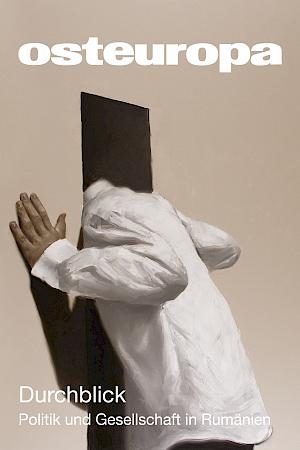Violent revolution, paradox consequences
The overthrow in Romania in 1989 and its legacy
Deutsche Fassung
Abstract
The essence, progress and outcome of the “Romanian revolution” still raises questions today. Who bears responsibility for the thousands of people who were killed or injured? Does the term “revolution” apply at all, in fact, when a communist regime was overthrown, but at the same time, a high degree of continuity in terms of personnel and institutions remained intact? The upheaval in Romania had paradox consequences. While the transition to democracy may have been more difficult than in Poland and Hungary, unlike in those countries, in Romania, no national populist, anti-European, authoritarian consensus emerged between the government and the people. For Romanian society, 1989 marked the beginning of a new protest culture against continued rule by corrupt, authoritarian coteries.
(Osteuropa 6-8/2019, pp. 93–104)



